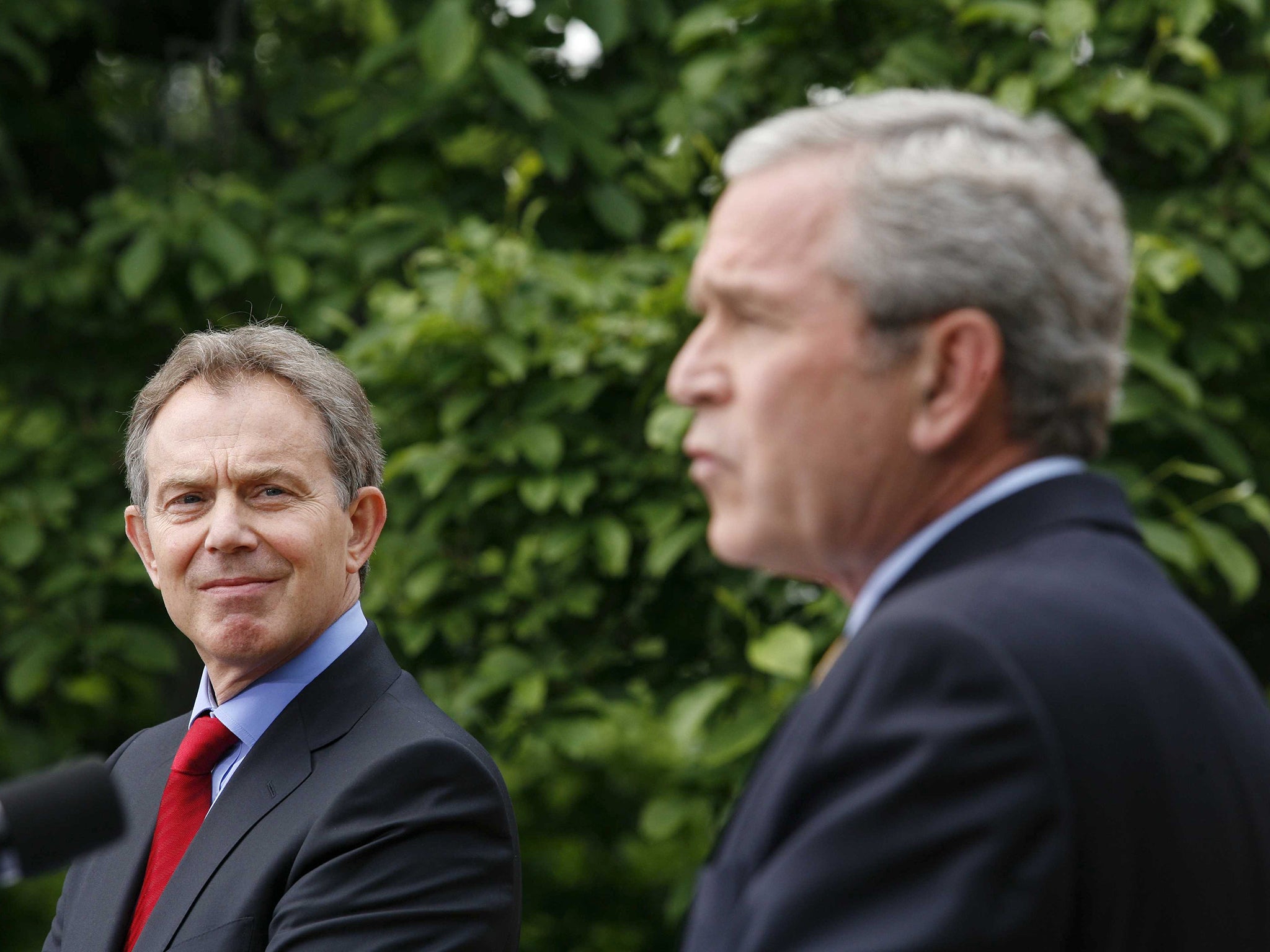Tony Blair didn't see the people, he saw the policies – which is why he chose war
There's no doubt that the dark shadow of the Chilcot report has brought forward his midget apology


Your support helps us to tell the story
From reproductive rights to climate change to Big Tech, The Independent is on the ground when the story is developing. Whether it's investigating the financials of Elon Musk's pro-Trump PAC or producing our latest documentary, 'The A Word', which shines a light on the American women fighting for reproductive rights, we know how important it is to parse out the facts from the messaging.
At such a critical moment in US history, we need reporters on the ground. Your donation allows us to keep sending journalists to speak to both sides of the story.
The Independent is trusted by Americans across the entire political spectrum. And unlike many other quality news outlets, we choose not to lock Americans out of our reporting and analysis with paywalls. We believe quality journalism should be available to everyone, paid for by those who can afford it.
Your support makes all the difference.Tony Blair’s at it again. He apologises – but not for the war, only for the “intelligence”. There are “elements of truth” – whatever that means – in the view that his and George W Bush’s 2003 Iraqi adventure might have caused the rise of Isis. There are some, I suppose, who might also say that this wretched man started a regional war that has totally obscured the tragedy of the Palestinians, who continue to endure the longest military occupation in modern history – one that Blair did nothing to end after he was sent outrageously as a “peace” envoy to Jerusalem. Perhaps he would agree that there are “elements of truth” in this suggestion, but I doubt it.
I have been infuriated by Blair’s failure to own up to the catastrophe. No doubt the dark shadow of the Chilcot report brought his midget apology, although Chilcot may well hide the truth and thus cast only sunlight on the man. What I found so appalling in his CNN interview, however, was the assumption that the Middle East is a place of inherent instability.
I am minded of this because of an article by the Palestinian Rami Khouri in which he comments on an article by Henry Kissinger. Khouri remarks that Kissinger’s view of the Middle East “seems to have no place for – or is simply blind to – the nearly half a million men and women, mostly Muslims, who live [there] and shape its societies and states … These people all seek the same thing that Kissinger presumably seeks for Americans: a stable, decent society where citizens can live in peace.”
Khouri acknowledges the “non-state actors and ethno-sectarian nationalisms” that have emerged. I would have said this in blunter language, but he rightly spots the US tendency to see the Middle East in terms of religious or ethnic groups (Shia, Sunnis, Maronites) waging existential wars “in an urban wasteland defined by armed gangs”.

I rather think that’s how Blair sees the Middle East. He sees territory, but he doesn’t see people. The mere fact that he could drag out the rotting corpse of Saddam Hussein shows what the problem is. Yes, Saddam did use gas “against his own people”. But when he was doing that, George Bush Snr was giving him military assistance in his war against Iran. And when we staged our 2003 adventure, most of those who were subsequently killed were not Saddamites or anti-Saddamites but “tens of thousands” (as CNN coyly states) of innocent civilians. By defining these people as Sunnis and Shia or Maronites, we demean them, forcing them into a box with labels – and very often into wooden boxes, too.
It does no good to ignore, as Khouri says, how American and other foreign powers’ policies contributed to the problems that shattered the superficial calm which, barring Arab-Israeli wars, defined the region for years after the Second World War. But we do not see the people, we see policies – which is why Blair chose war. That’s what wars were to Kissinger. That’s why he made peace between Iran and Iraq all those years ago, and sacrificed the Kurds.
That’s what the Americans did when they bombed Iraq again and again between 1991 and 2003, long after we had freed Kuwait from Saddam’s clutches. And that’s what we did when we invaded Iraq in 2003. And still it goes on. Did Isis start in Iraq or Syria?
I suspect that what we fail to do is take responsibility for our actions. We don’t plan, because we have no long-term plans. Churchill started planning the British occupation of a conquered Germany in 1941, even before the Nazis invaded the Soviet Union. But when the first US tanks crossed the Tigris river in 2003, neither Blair nor Bush had thought ahead. They were too busy with intelligence reports with “elements of truth” in them.
Join our commenting forum
Join thought-provoking conversations, follow other Independent readers and see their replies
Comments